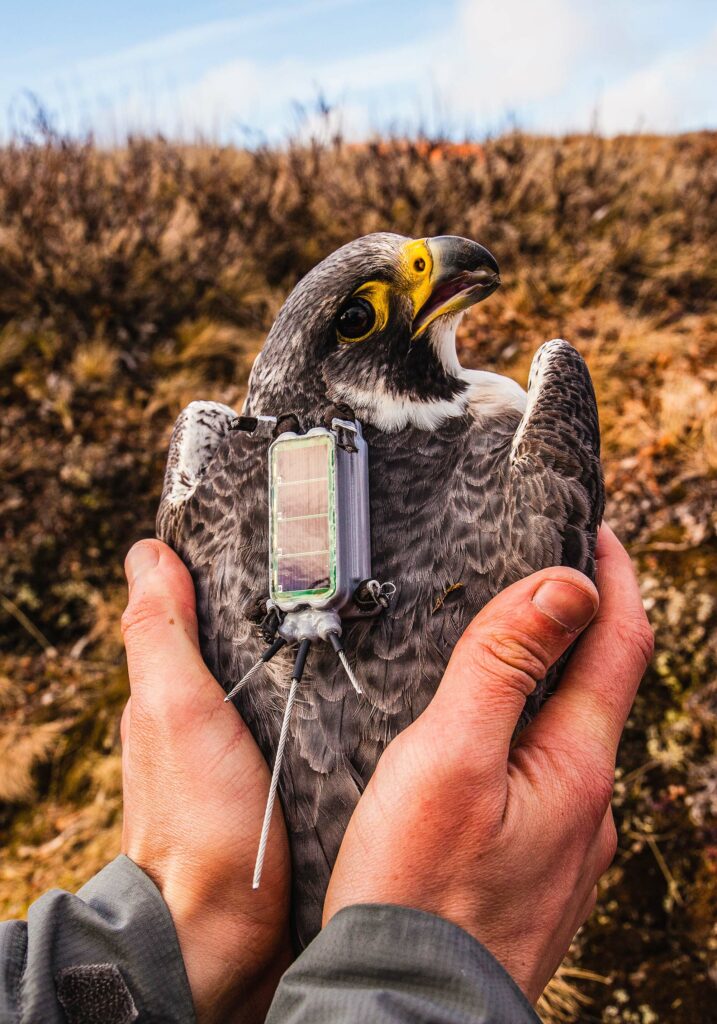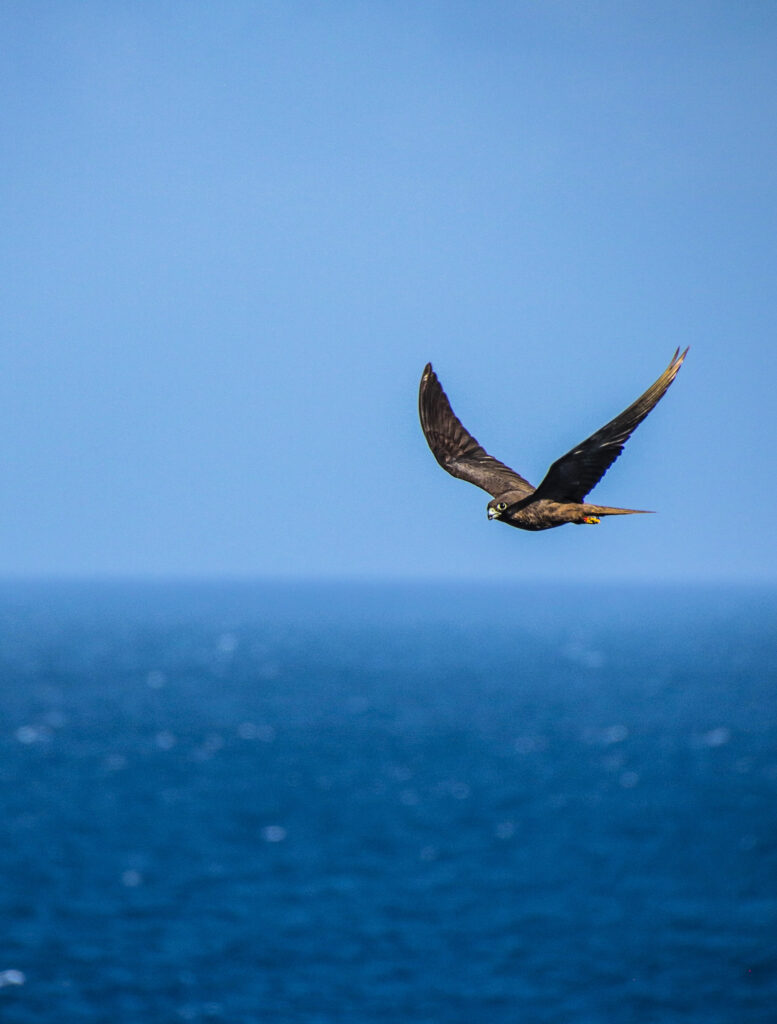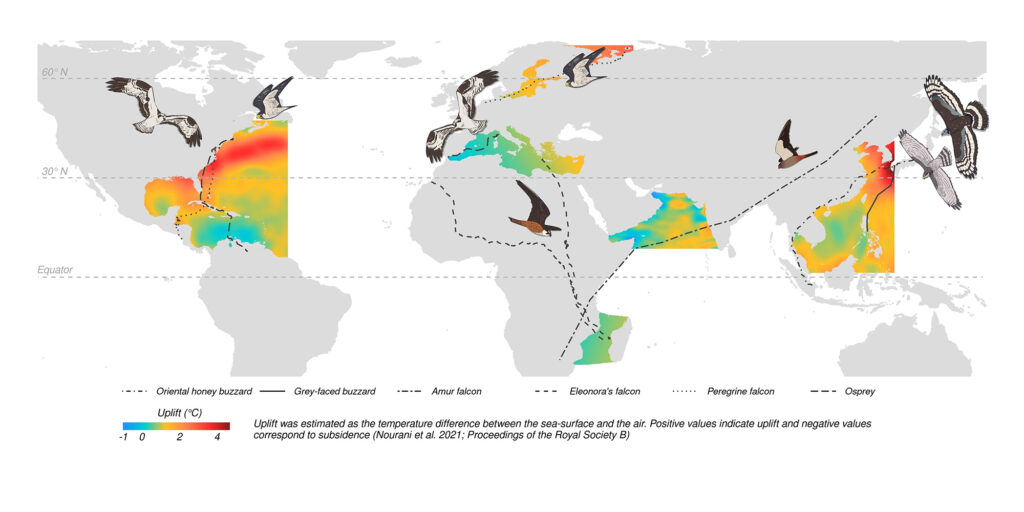Experts Say Global Warming Could Disrupt Winds That Are Crucial To Birds Crossing Hundreds Of Miles Of Open Water
GPS data reveals that large migratory birds depend on uplift wind to cross oceans bringing into question how climate change will affect the ability of birds such as falcons and buzzards to cross hundreds of miles of open water without resting or eating.
Researchers at the Max Planck Institute of Animal Behavior and the University of Konstanz in Germany used GPS trackers attached to 65 birds of five different species and analysed 112 sea crossings over the course of nine years to find out how these birds make the crossings without taking breaks or eating
Until recently experts assumed that large birds such as falcons and buzzards avoided crossing open seas that spanned more than 100 kilometres (62 miles) because flapping their wings uses so much energy they couldn’t sustain a non-stop flight for such extended periods of time.

The study, which they claim was the most wide-ranging study of sea-crossing bird migration, found that birds crossing 100s and even 1000s of kilometres of open water exploited wind and uplift to reduce energy costs during flight.
Unlike seabirds, the land birds in the study are not able to rest and hunt in the water and as a result, they have to be able to make the crossing in one non-stop flight.
Experts are now worried that the birds will not be able to make these treacherous crossings if global warming affects the uplifts which can be affected by changes in atmospheric temperature.
Elham Nourani, the first author on the paper, said: “Until recently, uplift was assumed to be weak or absent over the sea surface. We show that is not the case,”

Nourani added: “Instead, we find that migratory birds adjust their flight routes to benefit from the best wind and uplift conditions when they fly over the sea. This helps them sustain flight for hundreds of kilometres,”
The study found that the oriental honey buzzard flies 700 kilometres (434 miles) over the East China Sea during its annual migration from Japan to southeast Asia during an 18-hour non-stop flight.
Nourani said: “By making use of uplift, these birds can soar up to one kilometre (0.62 miles) above the sea surface,”
The study has raised the question of how migration will be affected by a changing climate, Nourani explained: “Our findings show that many land birds are dependent on atmospheric support to complete their migrations over the open sea, indicating their vulnerability to any changes to the Earth’s atmospheric circulation patterns,”

Nourani concluded: “Collaborative studies like this are important to unravel general patterns about how migratory birds depend on the weather patterns. This enables future studies to make robust predictions about how these birds will be impacted by climate change.”
The study titled ‘How land birds cross the open ocean’ was published by the Max Planck Society yesterday (8th September).


